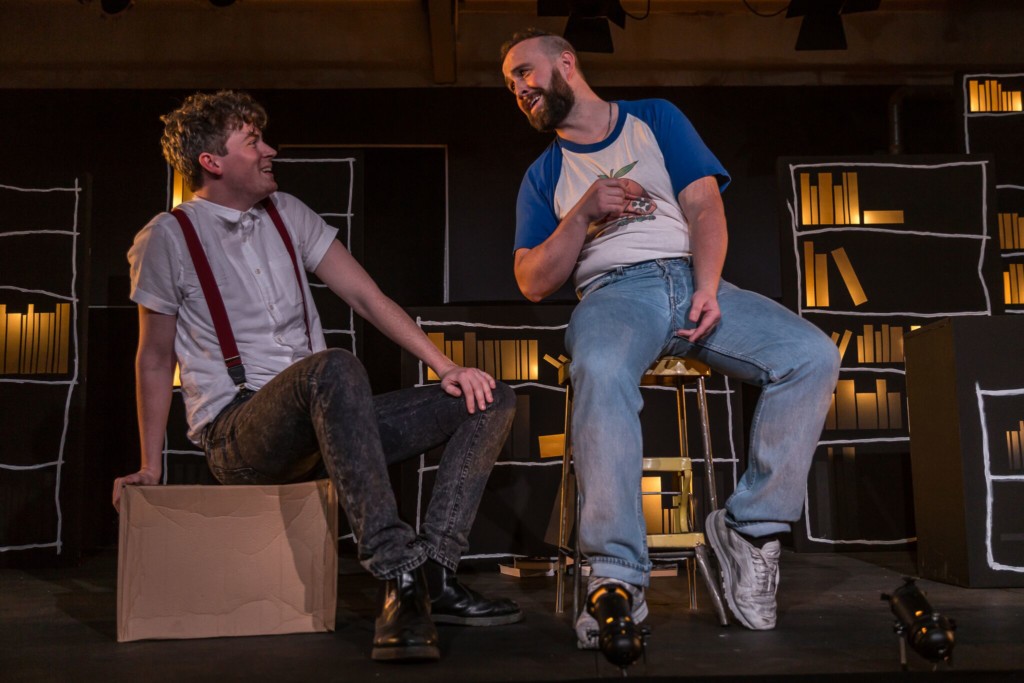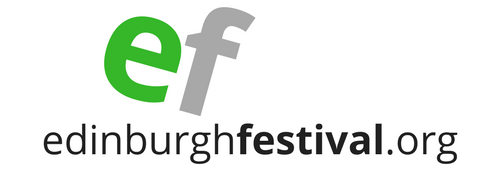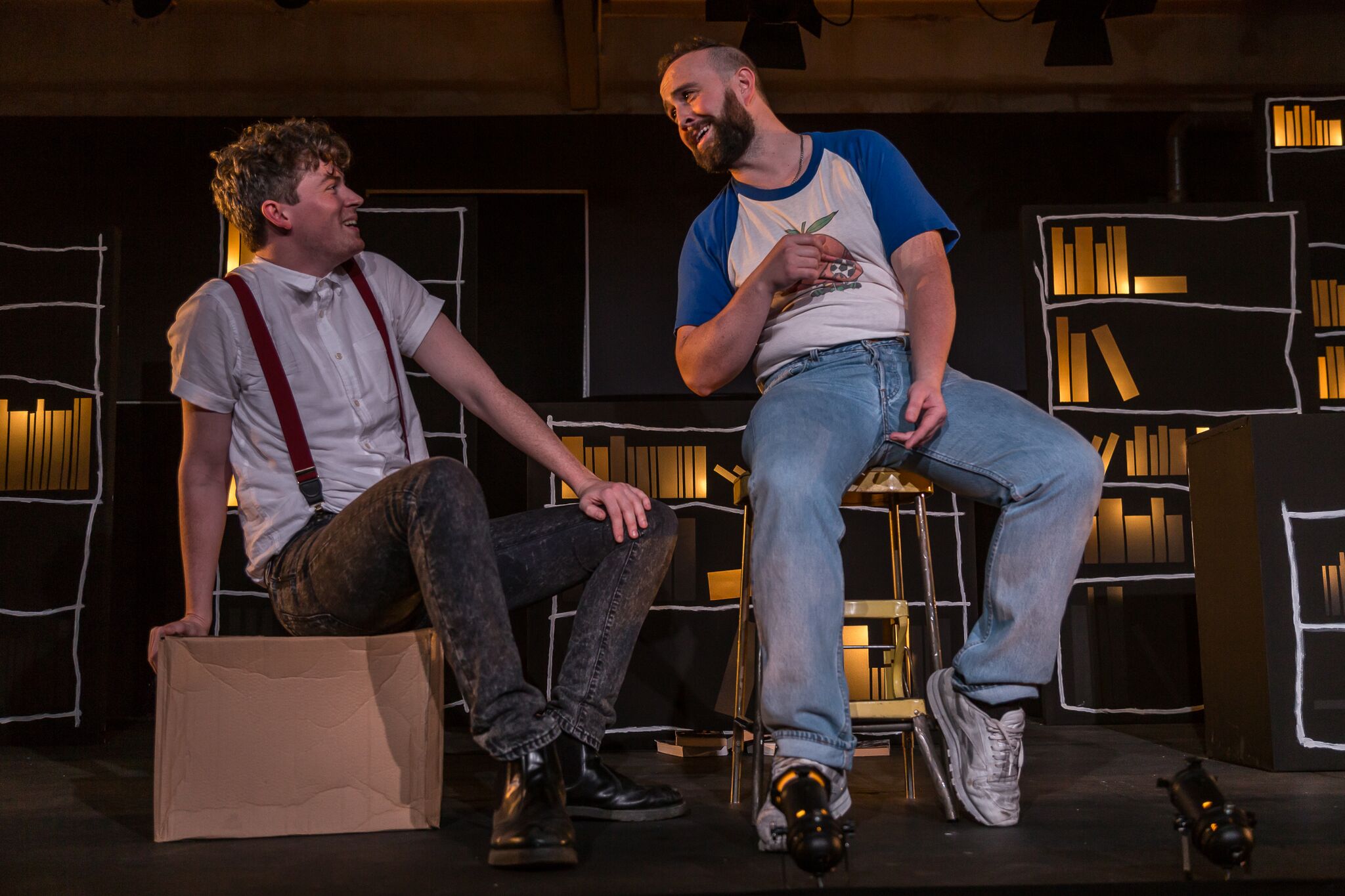
Love Song to Lavender Menace
The 1980s were definitely analogue. A bulky cassette player is prominent on the sparse but inventive set, and from time to time cassettes are thrown in, and we hit the play button.
The story that unfolds is about the birth, life and ultimate death of a bookshop in the 1980s. On paper, it may sound mundane, but the stories and performances that illuminate this period in time are anything but - they are full of passion, belief and humanity. And the two actors who tell the story give polished, heartfelt performances.
Lewis is played by Pierce Reid, Matthew McVarish is Glen, and the playful and sparky dialogue between these two quite different characters is a definite highlight in this strong and often very funny performance.
The sense of time and place is cleverly described with visually distinct asides and monologues, which swiftly segue into lively dialogue, and there is a clever interweaving of both personal stories and the discussion of the task in hand “we’re here to do a homage”.
Physical devices such as certain postures bring characters to life superbly, and the characterisation of the bluff policeman and the literally tight-arsed bank manager are a delight to watch. And there’s an 80’s soundtrack throughout, even playing as the audience gathers, and during the interval.
The venue is unusually intimate, too - the Lyceum’s rehearsal space just across the road from the main theatre, which is a blank canvas for the action.
The past talks to the future when, after a number of Doctor Who references, a time-traveller appears. A number of literary figures are lined up to play this short but important cameo, and it’s at this point that the differences between 1987 and 2017 become most stark, and highlight the importance of a simple bookshop.
The bookshop in question was Lavender Menace, and it sold books for an LGBT+ audience. It began life in the Gay Centre in Broughton Street, then moved to the cloakroom of Fire Island, a gay night club on Princes Street, and then had its third incarnation in a Forth Street basement.
At a meeting with a bank manager, the first six months of Lavender Menace’s life in Forth Street are described as a success, partly because there have been no arson attacks. There is on ongoing monologue from a married man who passes the shop regularly during lunch breaks, but can never muster the courage to enter the shop.
The significance of a bookshop that sold books that were otherwise unavailable was much greater in the 1980s that it might be today. It’s because it was largely analogue. There was no Amazon, no online reviews or blogs to guide or help readers. The way you found out about alternative offerings was through a physical, analogue network. Music was found in small independent record shops and second hand record exchanges, and also heard in new and second hand clothes shops. With the exception of the John Peel show, and very occasionally on Channel 4’s The Tube, Radio and TV was not a place you came across independent musicians or record labels. Alternative books and small, even hand-produced magazines were only found in places like Lavender Menace and the First of May bookshop in Candlemaker Row. Finding images that showed the reality of a conflict like the Miner’s strike in the mid 80’s was not a question of following a hashtag on Instagram or Twitter - this information was not available in mainstream media in Thatcher’s Britain, but could only be found in certain physical spaces, in publications with tiny circulations.
All this was at a time when AIDS, which was beginning to spread globally, was openly headlined as a ‘Gay Plague’ in tabloid newspapers. Football ‘casuals’ had a known penchant for ‘queer bashing’ and verbal and physical attacks on the street were not uncommon in Edinburgh.
So the role that a place like Lavender Menace had to play was far more significant than it might seem in 2017. It was an essential place to gather and share knowledge, and a counterpoint to mainstream mass media. Even a physical noticeboard where notices of events, meetings, rooms for rent and the like could be posted and viewed was vital for the LGBT+ community.
And so celebrating the life of this phenomenon is a story that is not just about a bookshop, but is about LGBT+ history, activism, liberation and culture. And how economic and cultural realities changed in the later 1980s, with the bookshop closing, and Fire Island becoming a bookshop of a different kind - Waterstones.
As the past looks at the future, it might be amazed that gay marriage is now legal in the UK, but it might also realise darkly that Donald Trump just recently described the members of an anti LGBT hate group as his ‘friends’ and endorsed the group by speaking at its conference.
So this uplifting, funny, beautifully written and superbly acted piece is about how the past should inform the present, and celebrates the struggle and the humour that formed a part of Edinburgh’s social history during one of the most transformative decades in recent history.
Go along to enjoy this uplifting performance, and remind yourself what has changed, and what has stayed the same, for good and for worse in this city.
4 stars
Click to book tickets
Lyceum Theatre, Edinburgh
20:00
Oct 12-21, Approximately 2 hours, includes one 15 minute interval.
Matinee Saturdays 2:30pm


